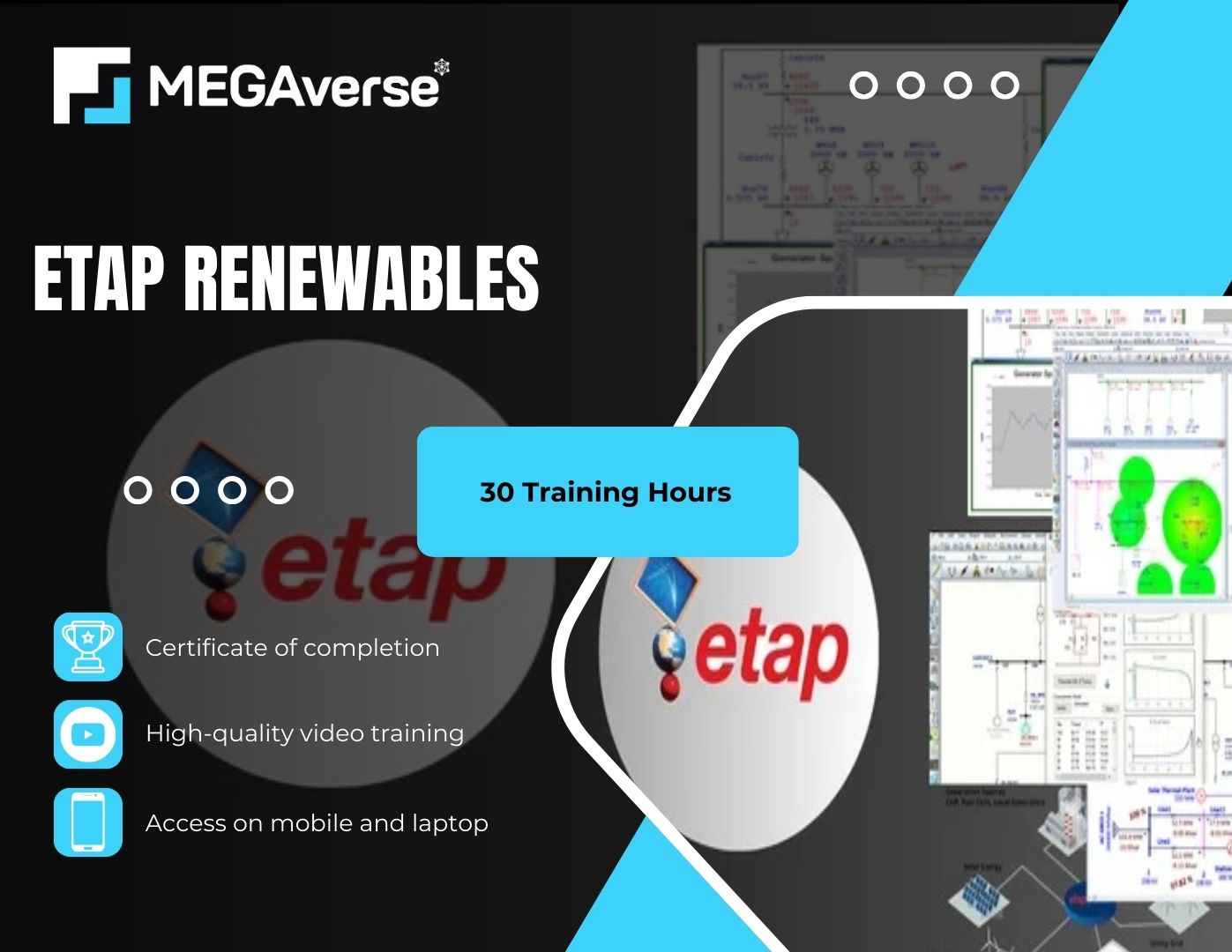Currently Empty: $0.00
About Course
Course Content
Lectures
-
01) Grid Code IRR TIC
03:08:49 -
1.1) Modeling of 2000KW Central Inverter
54:30 -
02) String Inverters (8 X 250KW)
01:08:04 -
03) DC Analysis of 2 X 2000KW Centeral Inverters
58:50 -
04) WTG Type1 SCIG Modeling
01:39:31 -
05) WTG Type2 WRIG Modeling
01:35:43 -
06) WTG Type3 DFIG Modeling
02:13:38 -
07) WTG Type4 PMSG Modeling
01:54:29 -
08) 10MW String Inverter Based PV Plant Modeling & Grid Impact Study
01:19:50 -
09) 50MW Central Inverter Based PV Plant Modeling & Grid Impact Study
01:12:00 -
10) 200MW 2 X Central Inverters IRR Based PV Plant Modeling & Grid Impact Study
00:00 -
11) 40MW WF Type1 SCIG Modeling & Grid Impact Study
00:00 -
12) 60MW WF Type2 WRIG Modeling & Grid Impact Study
00:00 -
13) 80MW WF Type3 DFIG Modeling & Grid Impact Study
01:26:44 -
14) 100MW WF Type4 PMSG Modeling & Grid Impact Study
01:04:34 -
15.1) IEEE 9 Bus System Power Flow, Fault Calculation and Harmonic Analysis
02:29:36 -
15.2) IEEE 9 Bus System Transient Stability, Voltage Stability and System Differential Equations
01:13:13 -
16) TDLF Hybrid Solar and WInd and BESS
01:28:27 -
17) LCOE and LROE and CO2 emissions
40:42 -
18) ETAP 24 Grid Impact Study
01:18:46 -
files
Student Ratings & Reviews

No Review Yet




